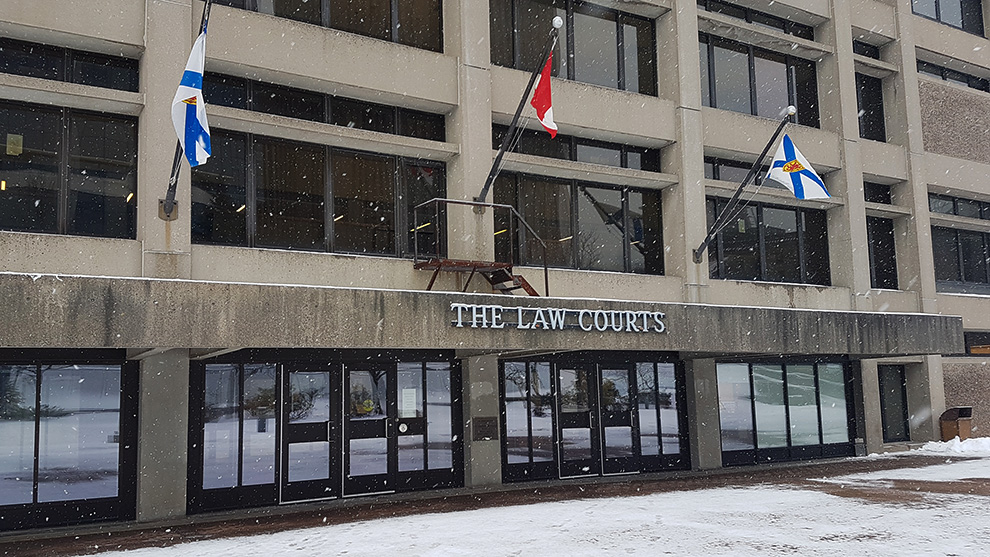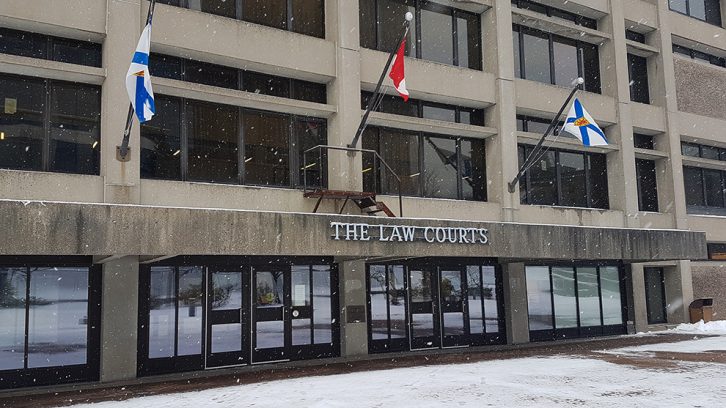Courts
Former navy sailor appeals sexual assault conviction
Paul Wayne Simpson received ineffective counsel at trial, lawyer argues

caption
The Nova Scotia Court of Appeal heard Paul Wayne Simpson's case at the Halifax Law Courts.
caption
The Nova Scotia Court of Appeal heard Paul Wayne Simpson’s case at the Halifax Law Courts.The Nova Scotia Court of Appeal heard the case of Paul Wayne Simpson, a former leading seaman in the navy convicted of sexual assault, during a two-day hearing.
Simpson was found guilty of sexually assaulting a woman during their second date on Feb. 23, 2014. He was sentenced to a three-year jail term following his trial in January 2017.
Justice Duncan R. Beveridge, Justice Elizabeth Van den Eynden and Justice Anne Derrick sat on the appeal panel on Wednesday and Thursday.
Simpson, who is out on bail pending the results of his appeal, is seeking to have his conviction overturned. He claims his former lawyer, Laura McCarthy, provided ineffective counsel during his trial.
Luke A. Craggs, Simpson’s lawyer, argued in court Thursday afternoon that McCarthy was inexperienced and wasn’t always prepared, and that contributed to the conviction. Craggs also argued McCarthy didn’t fully prepare Simpson to testify and that her cross examination of him was not thorough enough.
This appeal, said Craggs during the hearing “is about her handling of Mr. Simpson’s file and her ability to advocate effectively for Mr. Simpson. And, simply put, she was not and simply could not be an effective advocate.”
Craggs argued that McCarthy lacked the experience, the mentoring and the “mental energy” to represent Simpson and his case.
Simpson received the case from her husband, Lyle Howe, after he was convicted of a sexual assault in 2014 and had his law licence suspended. Howe’s conviction has since been overturned. Many of Howe’s other cases were passed to McCarthy, who had become a member of the bar about a year before.
Both Craggs and McCarthy acknowledged that McCarthy missed or was late to a number of court dates during Simpson’s trial, including days where she was ill. She was also late to court because she attended a hearing at the Nova Scotia Barristers’ Society regarding her husband’s licence to practise law.
Craggs also argued McCarthy failed to take notes at most of her meetings with Simpson, particularly toward the end of his trial, and that she pursued a trial by judge when Simpson wanted a jury trial.
During a cross examination, McCarthy testified that her husband’s hearing had occurred on short notice. She also said she and Simpson decided together that he would have a better chance and a faster trial by judge alone.
Crown attorney Jennifer MacLellan argued that the appeal court could find that the trial process was unfair to Simpson due to McCarthy’s lack of preparation and several delays to Simpson getting on the stand, but she still believed “the verdict is strong” because of the evidence.
The real question, said MacLellan, was whether issues of fairness in the trial meant a miscarriage of justice had occurred.
“That’s the big issue here,” she said, in an interview following the appeal.
The appeal court has reserved its decision.

